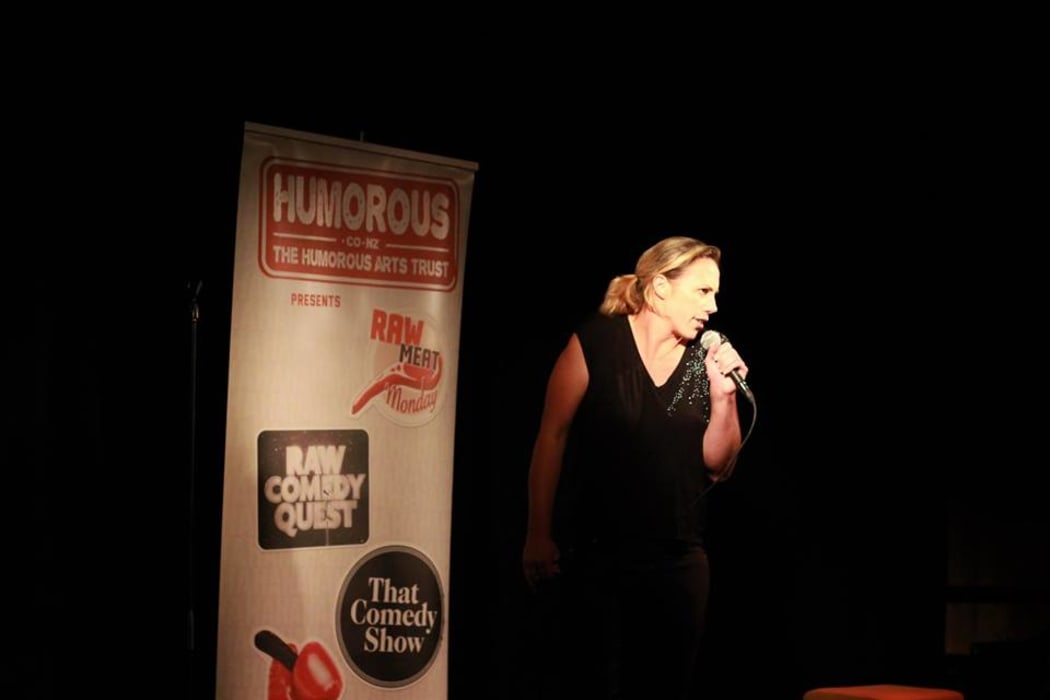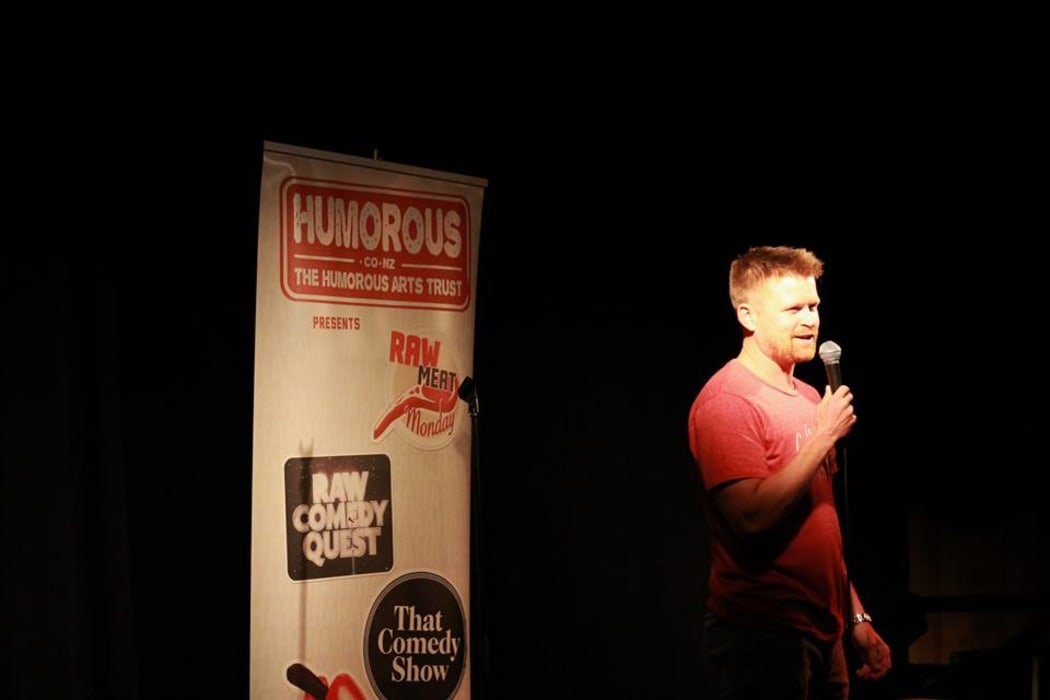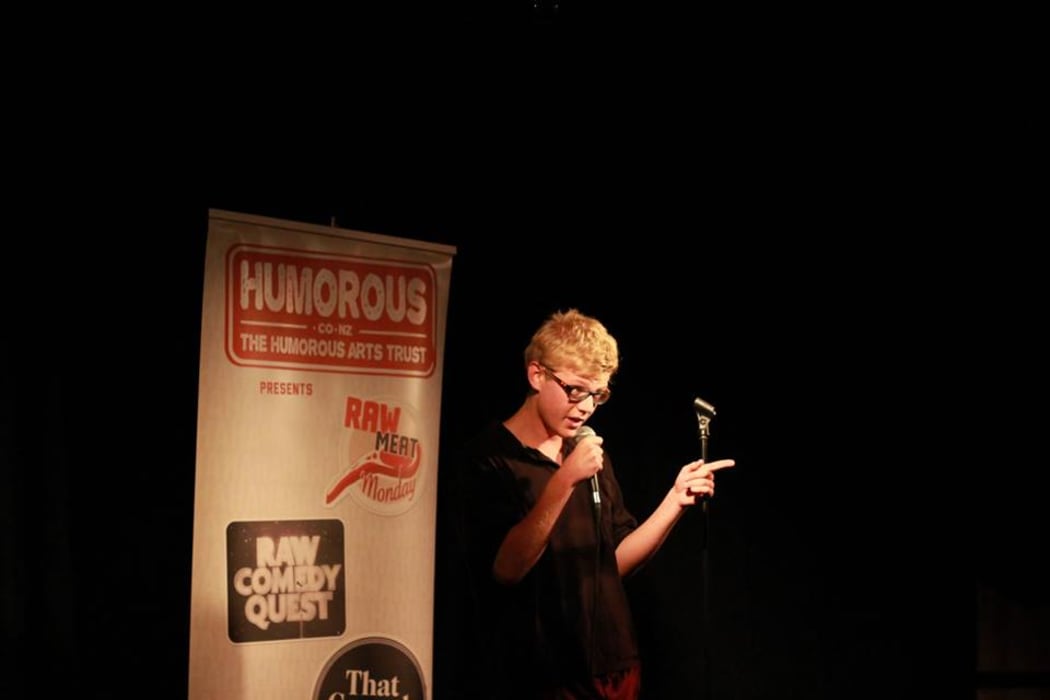By Zoë George
Laughing matters… especially if you’re a comedian.
The International Comedy Festival started this week in Wellington and Auckland and it’s attracting some big names - Tommy Tiernan, Stephen K Amos, Jim Jefferies and Felicity Ward to name a few.
But once upon a time, these big names were no-names and had to start somewhere.

Te Rina Taite Photo: Supplied
For some, the idea of being a stand-up comedian is stuff of nightmares, while others want to tick it off their bucket list.
Over the past few months the Raw Comedy Quest, run by The Humorous Trust, has been searching out the best fresh comedic talent in the capital.
Ten wannabe comedians took to the stage to bare their souls in hopes of following in the footsteps of Wellington stand-up James Nokise and Billy T Award winner Cori Gonzalez-Macuer.
The heat, which happened back in March, offered a variety of comedians. Some were very funny, receiving rapturous applause from the small but enthusiastic audience. Others evoked groans.
But all of them had something in common… they thought they were funny.
You might be funny, and tell a tall tale, but are you comedian material?
Raw Comedy Quest MC Jerome Chanderhasen and judge PR guru Brianne Kerr are looking for the x-factor from those giving it a go.
“I’m looking for that genuine belly laugh and taking you by surprise. That’s what good comedy is. It’s that laugh that sneaks up on you. It’s a delight,” Brianne says.
Having the audience relate to you also helps according to Jerome.
“One of the best things is when you see the audience relate to someone on stage they may not have related to on the street. You can see people connecting. It’s one of the things I love seeing happen.”
Comedians connect with the audience through shared experiences - from being multi-ethnic, to global travels, double-parking drinks, and the awkwardness of navigating the online/real life dating scenes.
That connection between the comedian and audience is important, but as a comic should you engage with the crowd?
For experienced comedians like Jerome, engaging with the audience is part of the act, but he says start slow and build up to the interactions. If you are going to engage the always assume the best.
“Everyone’s got something interesting about them. No matter their job is, there’s got to be something fascinating about it,” he says.
While on stage hosting, Jerome had an interesting experience with an audience member who attended art school. “You’re a painter, that’s cool. And what’s your favourite thing to paint? Scenery, landscapes? You laugh like you paint houses...”
It turned out the young man painted gay wrestlers. “That’s so f**king Wellington… of course he f**king does,” Jerome laughs.

Adam Chown Photo: Supplied
While that engagement can be fun, Jerome says to stick to what you know best to start with, and that’s yourself.
“If you’re doing it for the first time talk about yourself. Talk about something you're passionate about or angry about, or have an emotional reaction to. That’s what audiences want to hear.”
Many jokes are done on the fly while others take weeks, months or even years to craft. Te Rina Taite has been doing stand up for a couple of years and spent time overseas to help hone her craft.
She’s been eyeing up a career in television and film comedy writing and attended courses to help her excel in her chosen pathway.
“I took the course originally to learn how to write a joke, which sounds simple but I needed to be taught how,” she says. “It’s a great way to network and meet people. It’s a fun scene.”
Humour comes in different shapes and sizes. You’ve got the quick witted one liners, puns and long form stories; so what’s the shape of the perfect joke and set?
According to Welshman Adam Chown, it’s about using what you’ve got to your advantage.
In his case it’s his Welsh accent (“I’m like the Maria Sharapova of Raw Comedy”).
And that he’s struggling with technology in his 30s.
“As a kid the only form of long distance communication was the house phone. If you don’t know what it is get your smart phone, tape it up so you can’t see who’s calling, chain it in a communal area and let anyone answer it.
“The house phone was my first introduction to the cock-block. If you liked someone you’d go up to their face and ask them on a date. They’d give you their phone number and you’d organise a time to call. You could be as vague, or as specific as you like, it didn’t matter what time you called, there was only one person who would answer - Dad”).
And as he hails from Wales, he’s “contractually obliged to tell at least one Tom Jones joke per set”.
For Adam, who eventually comes third in the Wellington final, it’s about getting the timing right, which means the build up to a joke needs to be worth the laugh at the end.
“If you take two minutes talking about something then the laugh has to be worth it. There’s nothing worse than dropping the punchline and just standing there with silence.”
Some jokes get laughs, others, as Adam points out get dead silence. In the industry bombing is common.

Joe Lewis Photo: Supplied
And according to Jerome Chandrahasen it’s something budding comedians have to get used to as it happens to everyone in the business. But he has a good rule to get over both successes and failures on stage.
“If you had a really great set feel good about it until 11am the next day then move on. If you had a really bad set feel bad about it until 11am the next day and move on. Just roll on and then balance out,” he says.
One stand-up who had a reasonably rough time on the night was 17-year-old Joe Lewis, the youngest of competitors.
He drew his inspiration for his set from his current existential crisis, which evoked a few chuckles and groans.
“Every joke that I write is getting worse and worse, I’m sure you can tell. I think I’m gonna resort to coming out and shitting myself on stage. And I’ll call self-defecating humor,” he tells the crowd.
“I don’t understand how that joke has never been made before. But it has right now, right here. If that’s not enough to save me I don’t know what is.”
Toilet humour and bodily functions were a common theme with many of the comedians. There were also mentions of culture, gender and sex, including a few lines on pedophilia.
But is there a line in which comedy goes too far?
Brianne Kerr says it’s all about humour being in the ear of the beholder. She was taken by surprise by some things.
“There were lots of poo jokes! I guess it’s about giving it a go and getting it out of your system,” she says. “There’s a good comedian standard about punching up than punching down. I was proud of them.”

Zoe George Photo: RNZ/ Alexander Robertson
If you want to get into it as a career, or just for a bit of a laugh, Jerome has some final words:
“Just be honest, just have some truth in it that people can connect to and believe and even in one liner there has to be truth”.
And do puns count? “A good well-crafted pun is a delight to the ears,” Brianne concludes.
We’ll hold her to that.
Note - this audio contains some colourful language

